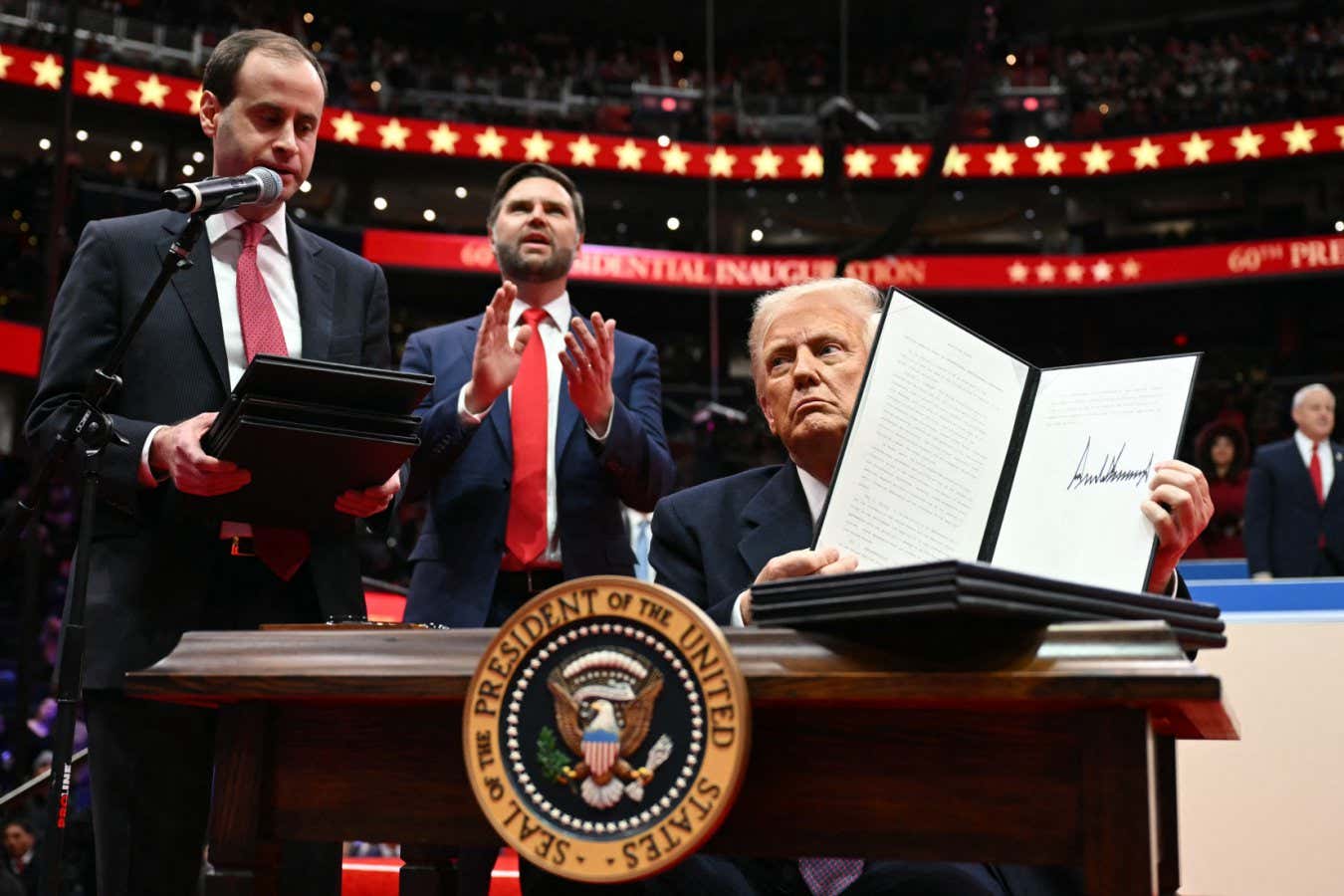The world’s largest economy and second-largest emitter of greenhouse gases will withdraw from the global climate pact, disrupting efforts to tackle climate change
By James Dinneen
21 January 2025
Donald Trump holding an executive order announcing the US withdrawal from the Paris Agreement
JIM WATSON/AFP/Getty Images
A cheer went up from the crowd in a Washington DC stadium on 20 January as US president Donald Trump signed an order on stage to withdraw the US from the Paris climate treaty. The order said the move was in the interest of putting “America first”. But environmental groups condemned the decision, arguing the exit of the world’s second-largest greenhouse gas emitter from the agreement will exacerbate climate damages while ceding US influence in global negotiations to its rival and clean-energy juggernaut, China.
“This is a matter of the US and the Trump administration shooting themselves in the foot,” says David Waskow at the World Resources Institute, a global environmental nonprofit. “It will sideline the US.”
Read more
Is climate change accelerating and is it worse than we expected?
Advertisement
This is the second time Trump has pulled the US out of the Paris Agreement, the landmark deal agreed upon in 2015 to limit global warming to well below 2°C above the pre-industrial average. Due to the rules of the United Nations treaty, the first exit in 2017 took three years to become official, and the US only left for a few months before the former US president Joe Biden had the country rejoin in 2021.
This time around, the rules of the accord stipulate it will take a year for the withdrawal to become official, at which point the US will be the only major economy not party to the agreement. The other countries that have not signed on are Libya, Yemen and Iran.
“This is definitely not good news for international climate action,” says Li Shuo at the Asia Society Policy Institute in Washington DC. Unlike the first time the US withdrew, this second exit comes at a moment when the country’s appetite for ambitious emission reductions was already facing geopolitical, social and economic obstacles, he says. Last year saw record global emissions while the rise in global average temperatures surpassed 1.5°C for the first time.
